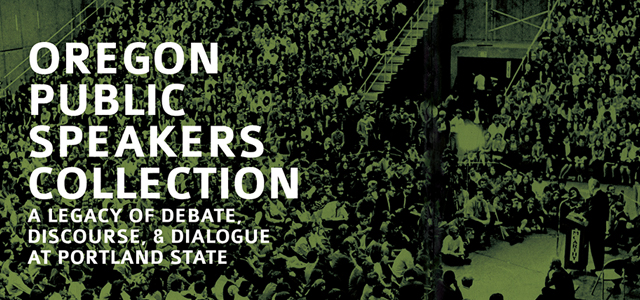Date
6-29-1979
Series
Ecosystems Lectures
Length
1 hour 35 minutes
Original Description
Presented with Brown, Harrison Scott, "Energy Resources."
Notes
Christopher Salter, an American geographer, taught at University of California, Los Angeles. In the first of two lectures, Salter suggests ways of conceptualizing the city in general and urban landscape in particular. This lecture is part of the "Ecosystems" series of lectures sponsored by Sigma Xi- Earth Resources Ltd.
Transferred and preserved by Portland State University Library’s Special Collections with the generous support of the Institute of Museum and Library Services through the Library Services and Technology Act, administered by the Oregon State Library.
Subjects
Ecosystems, City planning, Geography
Original Format
Reel to reel, 3.75 ips, 4 track, mono
Rights
This digital access copy is made available as streaming media for personal, educational, and non-commercial use only. It cannot be reproduced in any form, distributed or played for commercial purposes. It is made accessible because of one or more of the following situations: the rights are owned by State Board of Higher Education, on behalf of Portland State University; Portland State University has permission to make it accessible; it is made accessible for education and research purposes under fair use; or there are no known restrictions on use. In the event that previously unknown information is shared that may change the status of this item, it will be immediately removed from public view until pertinent rights issues are clarified.
Persistent Identifier
http://archives.pdx.edu/ds/psu/11426
Recommended Citation
Salter, Christopher L., ""The Urban Enigma: America's Urban Alternatives"" (1979). Special Collections: Oregon Public Speakers. 170.
http://archives.pdx.edu/ds/psu/11426
Included in
Geography Commons, Natural Resources Management and Policy Commons, Urban Studies and Planning Commons



Description
Transcript added July 29, 2020.
PSU Library Special Collections and University Archives presents these recordings as part of the historical record. They reflect the recollections and opinions of the individual speakers and are not intended to be representative of the views of Portland State University. They may contain language, ideas, or stereotypes that are offensive to others.